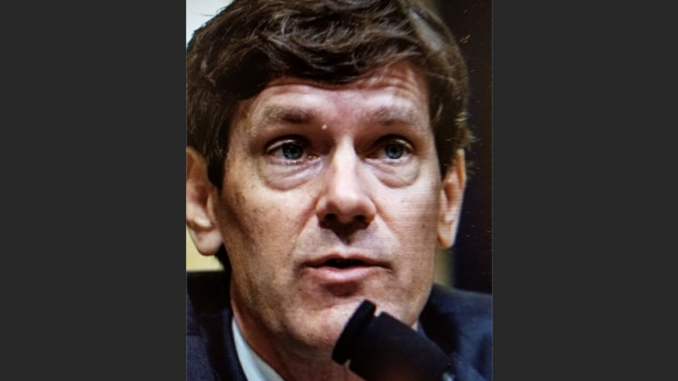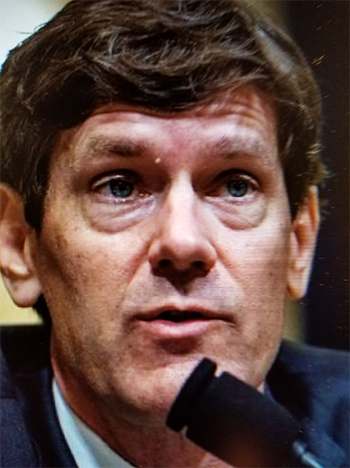
By Janice K. Neal-Vincent,
Contributing Writer,

More than 238 Jackson State University and Jackson citizens participated in a virtual conversation on COVID-19 vaccination readiness with Dr. Thomas Dobbs, State Health Officer, on Tuesday, December 22.
Dobbs told participants that coronavirus is a virus that thrives on social interaction. It sees people, but they don’t see it. Mississippians should not lose sight that anyone with whom they come in contact could have COVID-19. Hence, getting vaccinated is important for individual and community health.
Dobbs and other health officials were among the first to receive a recently approved COVID-19 vaccine during a news conference on Dec. 14.
According to Dobbs, clinical studies have shown that the [Pfizer and Moderna] vaccines are “extremely effective” and have “a very favorable side-effect profile.” Further, he recommended that everyone get vaccinated as vaccinations are not only good for individuals, but for community.
Pointing out that no one could get the coronavirus from the shot, Dobbs made it clear that herd immunity indirectly protects infectious disease that occurs when a sufficient percentage of a population (herd) has become immune to an infection, thereby reducing the likelihood of infection for persons who lack immunity.
So when a segment of the community builds up resistance to COVID-19, its spread greatly decreases to the rest of the populace.
Dr. Clifton Addison (senior research scientist/senior investigator, Jackson Heart Study at JSU) mentioned the spread of a new form of coronavirus. “It is more deadly than the original. What is the realistic goal for the vaccine?”
“If we get 60 or 70% of Mississippians vaccinated, we will see a decrease in coronavirus infections,” Dobbs proffered.
Dr. Justin Turner, a 2003 JSU alum and internist of Davis Therapeutic Services, LLC injected that the black community is affected more than any populace. He declared that many blacks distrust doctors and other health officials because of past experiences.
The Tuskegee Syphilis Experiment, a clinical study of untreated syphilis in the African-American male between 1932 and 1972 by the US Public Health Service, has spawned skepticism.
To quell lurking fears of COVID-19 vaccinations, Turner claimed, “But several have worked diligently to eradicate problems… Efforts are made to cater to concerns of the black populace.”
Turner then expressed to listeners: “Your concerns are our concerns. You all want to hear from trusted sources to be able to know that the information you’re getting, the vaccines that we’re talking about [are] going to be worth taking the risk.”
Dobbs responded: “The risk of the vaccine is minimal and the risk of COVID is substantial. So we need to not only do it for ourselves but do it for our families and our communities.”
The number of COVID-19 illnesses and deaths hinges on Mississippians’ conduct during the Christmas season, particularly since cases have spiked in the state.
Dobbs warned that all Mississippians are responsible for limiting the spread of the disease. They are in the high risk category if they fail to wash their hands, fail to use hand sanitizers, fail to social distance and fail to wear face masks or coverings (especially indoors). He then asserted that people run a risk if they share meals because “the holiday table brings with it a silent super spreader.”
The State Health Officer explained that most people are unaware that they have COVID-19 when they spread it. But the body “teaches itself how to recognize the virus…One person gets it and infects somebody else,” said Dobbs.
Limiting the presence of others is crucial to limiting the spread of COVID-19. Thus, Dobbs suggested that unless for “urgent” or “essential” means, travel (including restaurants, airports, weddings, funerals, sporting events and in-person church services) should be avoided.
Dobbs added that once a person is infected, it takes time to fight off germs.
Healthcare personnel, nursing home workers and occupants, older adults and persons irrespective of age with underlying health conditions are to get vaccinated during the first phase. Essential workers would be next, followed by the remaining populace. In approximately 21 days a second dose is essential.
According to Dobbs, persons with type 1 and type 2 diabetes and asthma should be vaccinated. Expectant mothers and other persons with health concerns should seek guidance from their physicians.
JSU President Thomas Hudson encouraged everyone to get vaccinated and said he planned to get vaccinated publicly.
“Thanks Dr. Dobbs. We are in the forefront of this conversation. Don’t count us out,” said Alisa Mosley, interim provost and vice president for Academic Affairs.
Mosley spoke favorably of Dr. Dobbs’ work, proclaimed that JSU was “a partner in the fight against the coronavirus” and appealed to the participants to “listen to the science.”
JSU anticipates conducting a second session of COVID-19 in January 2021.
Presiding officer for the event was Marinelle Payton, MD & PhD, founding chair of Public Health at JSU.
For further insight into COVID-19, visit https://www.fda.gov; Mississippi Coronavirus Hotline – 877-978-6453.

Be the first to comment